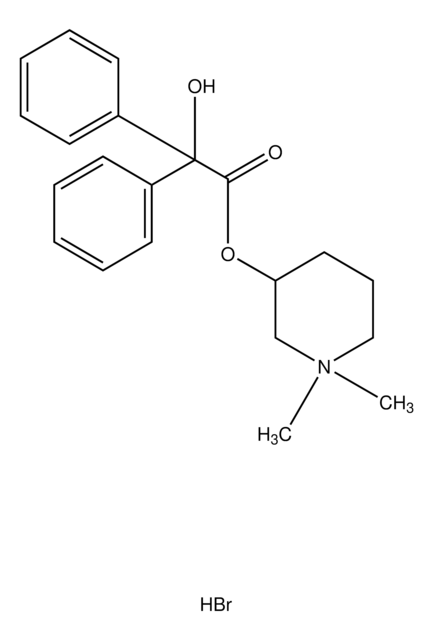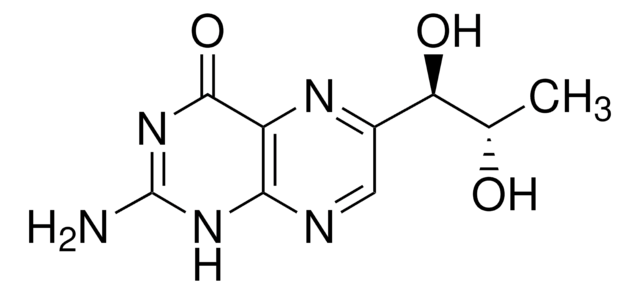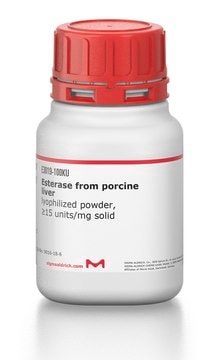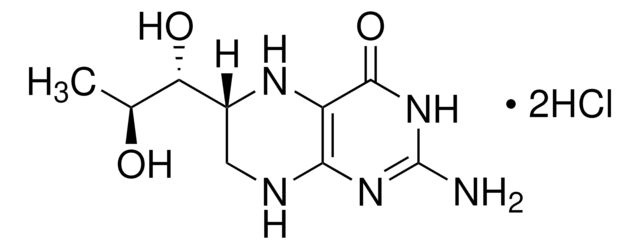M5793
3-Morpholinosydnonimine hydrochloride
(consistent with structure, NMR)
Synonym(s):
3-(4-Morpholinyl)sydnone imine hydrochloride, Linsidomine hydrochloride, SIN-1 hydrochloride
About This Item
Recommended Products
Quality Level
storage temp.
−20°C
SMILES string
Cl[H].[NH-]c1c[n+](no1)N2CCOCC2
InChI
1S/C6H10N4O2.ClH/c7-6-5-10(8-12-6)9-1-3-11-4-2-9;/h5,7H,1-4H2;1H
InChI key
NCGICGYLBXGBGN-UHFFFAOYSA-N
Looking for similar products? Visit Product Comparison Guide
Application
- as a peroxynitrite donor standard to study the accumulation of peroxynitrite in Arabidopsis thaliana
- to study its effects on nitrosative stress in human brain vascular pericytes and human embryonic kidney cells
- as a ROS to study its effects on mouse embryonic fibroblasts
Biochem/physiol Actions
Storage Class Code
11 - Combustible Solids
WGK
WGK 2
Flash Point(F)
Not applicable
Flash Point(C)
Not applicable
Personal Protective Equipment
Certificates of Analysis (COA)
Search for Certificates of Analysis (COA) by entering the products Lot/Batch Number. Lot and Batch Numbers can be found on a product’s label following the words ‘Lot’ or ‘Batch’.
Already Own This Product?
Find documentation for the products that you have recently purchased in the Document Library.
Customers Also Viewed
Articles
DISCOVER Bioactive Small Molecules for Nitric Oxide & Cell Stress Research
DISCOVER Bioactive Small Molecules for Nitric Oxide & Cell Stress Research
DISCOVER Bioactive Small Molecules for Nitric Oxide & Cell Stress Research
DISCOVER Bioactive Small Molecules for Nitric Oxide & Cell Stress Research
Our team of scientists has experience in all areas of research including Life Science, Material Science, Chemical Synthesis, Chromatography, Analytical and many others.
Contact Technical Service














